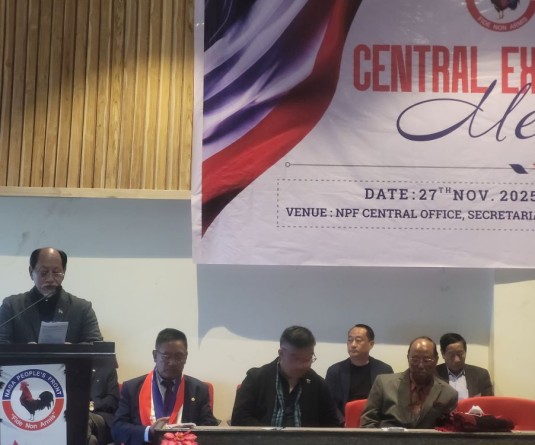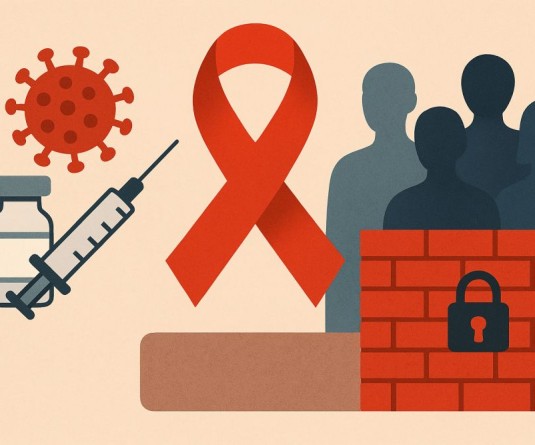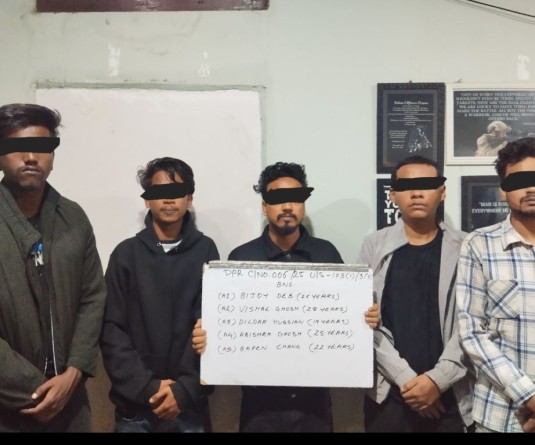
NPMHR welcomes Delhi HC notice in Luingam Luithui petition
KOHIMA, MARCH 10 (MExN): The Naga Peoples Movement for Human Rights (NPMHR) has welcomed the issue of notice on March 10 by the Delhi High Court to the Ministry of Home Affairs, Ministry of External Affairs, and the Indian High Commission at Ottawa Canada, in a writ petition filed by Luingam Luithui, his wife Peingamla Luithui, and members of the immediate family and clan, demanding the full restoration of the citizenship rights of Luithui and his wife.
Luingam Luithui, a founding member of the NPMHR and a senior civil rights activist, and his wife, has been living in virtual exile in Canada ever since 1995.
The petition is about reclaiming the rightful citizenship of Luithui and his wife. “It seeks declaratory and substantive reliefs and prays for the enforcement of various constitutional, statutory citizenship rights and other allied fundamental rights guaranteed under the Constitution of India,” informed the NPMHR in a press release from its Secretary General, Dr. Gina Shangkham. The petition also challenges the constitutional validity of provisions of the Citizenship Act, 1955 and Passport Act, 1967 and accompanying rules, insofar as these empower the State to effectively exile and banish a citizen of India by birth through refusal or impounding of their passport or travel document and thereby preventing such citizen from returning to India and exercising their constitutional citizenship rights.
The NPMHR noted that “This tragic violation of their fundamental rights is a direct result of unconstitutional acts and omissions of abuse of process, and of fraud and deception perpetrated by the Government of India, making it impossible for them to return to India, and forcing them to take Canadian citizenship after almost a decade of statelessness abroad.”
“Luingam Luithui and his wife have been forcibly exiled from India,” stated the NPMHR, adding that it believes in “the sanctity of the Court and rule of law and has complete faith that justice will be done in the writ petition, and the unconstitutional acts and omissions and frauds committed upon the Petitioners will be reversed.”
The petition has also arrayed as parties the United Nations High Commissioner for Refugees, and the Government of Canada, which came to the rescue of Luithui and his wife upon their abandonment abroad by the Indian State.
It was further informed that aside from Luingam and Peingamla Luithui, twelve others forming their nuclear and extended families and members of the Luithui clan and other family elders, the Chairman of Langdang Phungcham, and the Pastor of Langdang Phungcham Baptist Church are also petitioners in the present writ. They are also praying for the enforcement of their fundamental rights which are being violated by denying the Luithui and his wife to return to the family and community.
The matter came up for hearing before the Acting Chief Justice of the High Court of Delhi, Justice Badar Durrez Ahmed, and Justice Siddharth Mridul. The Petitioners were represented by Senior Advocate, M.S. Ganesh, assisted by Shomona Khanna, K. Seshachary, and Sahana Basavapatna, Advocates.
Luingam Luithui has been involved from his youth in the formation of many mass-based platforms and has served in various human rights organisations. A signatory to the letter petition that eventually resulted in the Supreme Court of India’s judgment on Armed Forces Special Powers Act (AFSPA) in NPMHR v. Union of India (1998 2 SCC 109), his human rights work transcends borders and peoples. During the Emergency period, as a student in Delhi he actively, along with others, worked for the rights of ordinary citizens.
In the latter part of the 1980s, recognising the need for an indigenous peoples’ platform for Asia, he took the lead in setting up the Asia Indigenous Peoples Pact (AIPP) eventually becoming its first Secretary General for two consecutive terms from 1992 till 2000. He was also involved in United Nations’ processes on human rights actively contributing to the UN’s Working Group on Indigenous Populations and the drafting of the UN Declaration on the Rights of Indigenous Peoples. In 1993, as a special invitee, he addressed the UN Conference on Human Rights, Vienna on issues of indigenous and tribal peoples in Asia.






